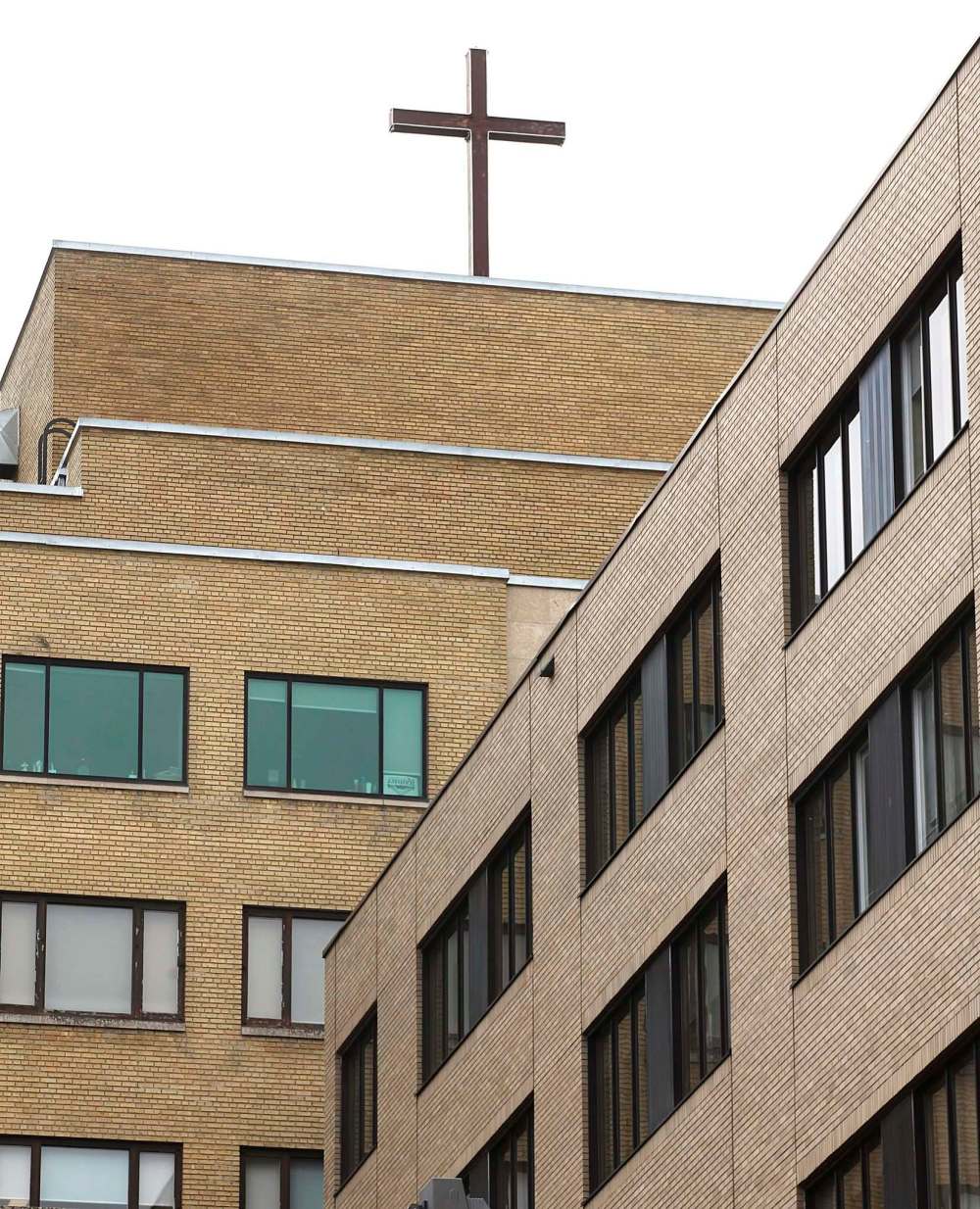The beliefs of some, paid for by all
Advertisement
Read this article for free:
or
Already have an account? Log in here »
To continue reading, please subscribe:
Monthly Digital Subscription
$1 per week for 24 weeks*
- Enjoy unlimited reading on winnipegfreepress.com
- Read the E-Edition, our digital replica newspaper
- Access News Break, our award-winning app
- Play interactive puzzles
*Billed as $4.00 plus GST every four weeks. After 24 weeks, price increases to the regular rate of $19.00 plus GST every four weeks. Offer available to new and qualified returning subscribers only. Cancel any time.
Monthly Digital Subscription
$4.75/week*
- Enjoy unlimited reading on winnipegfreepress.com
- Read the E-Edition, our digital replica newspaper
- Access News Break, our award-winning app
- Play interactive puzzles
*Billed as $19 plus GST every four weeks. Cancel any time.
To continue reading, please subscribe:
Add Free Press access to your Brandon Sun subscription for only an additional
$1 for the first 4 weeks*
*Your next subscription payment will increase by $1.00 and you will be charged $16.99 plus GST for four weeks. After four weeks, your payment will increase to $23.99 plus GST every four weeks.
Read unlimited articles for free today:
or
Already have an account? Log in here »
Hey there, time traveller!
This article was published 21/06/2017 (3041 days ago), so information in it may no longer be current.
‘First, do no harm.”
It’s a bedrock principle that governs every physician’s conduct, so inextricably linked to perceptions of the practice of medicine that most believe (mistakenly) it’s the first sentence of the Hippocratic oath. It actually isn’t part of the centuries-old vow taken by doctors as they embark on their careers, but it’s so fundamental to the ethics and morality of medical practice that it probably should be.
Questions of doing harm, doing good and causing harm while in the pursuit of a greater good are front and centre this week at St. Boniface Hospital, where administrators, board members, health-care professionals and patients are grappling with big questions related to the issue of assisted dying.

The hospital landed in a political and public-relations firestorm this week after the Catholic Health Corp. of Manitoba — which controls SBH — took the controversial step of reconfiguring the hospital’s board after the passage last month of a motion to allow for medically assisted death under “rare circumstances.”
The corporation responded by adding 10 new members to SBH’s board, forcing a re-vote that effectively bans assisted dying at the hospital — which, ironically, is the province’s primary palliative-care centre.
Opinion is sharply divided on the topic of medically assisted dying, which became legal in Canada in June 2016. Matters of faith and personal morality inform most individuals’ views on such delicate end-of-life decisions and it’s a subject most politicians dread being forced to discuss at the local level. They might now be forced to do just that.
Regardless of one’s beliefs about assisted dying, it’s difficult to view the tactics employed by the Catholic Health Corp.’s board as not having strayed into precarious ethical territory.
CHCM chief executive officer Daniel Lussier defended the board-composition gambit, saying the abrupt strategy was employed “to protect the integrity of our organization.”
While it’s true that the province’s 1996 faith-based agreement with several government-funded local facilities — including SBH, Concordia Hospital and Misericordia Health Centre — allows for independent governance that respects individual missions and cultures, it’s equally true that such religiously informed models increasingly are at odds with an ethnically and religiously diverse public’s need for access to health care.
The legislation that legalized medically assisted dying does not force medical professionals who object to the practice to participate in it; the current situation at SGBH, however, seeks to extend the ethical opt-out provision to a bricks-and-mortar facility that employs numerous doctors and nurses who are supportive of the practice.
Under the leadership of Pope Francis, the Roman Catholic Church has moderated its stance on several issues, with the pontiff having issued relatively progressive statements on such topics as climate change, gender pay equity and even gay marriage. On the issue of assisted dying, however, the church holds fast to the view that euthanasia is a “triumph of selfishness” rather than an act of compassion.
It’s an understatement to say the Catholic Church’s history is replete with instances in which intransigence and adherence to ideas mired in a murky past have placed the institution on the wrong side of history. There’s no scandal in what’s occurring at St. Boniface, but the unease created by the CHCM’s questionable tactics suggests it’s time for the province to reassess its relationship with faith-based institutions supported by taxpayers who expect medical care that meets their immediate and often urgent needs rather than an agenda-driven board’s higher purposes.




